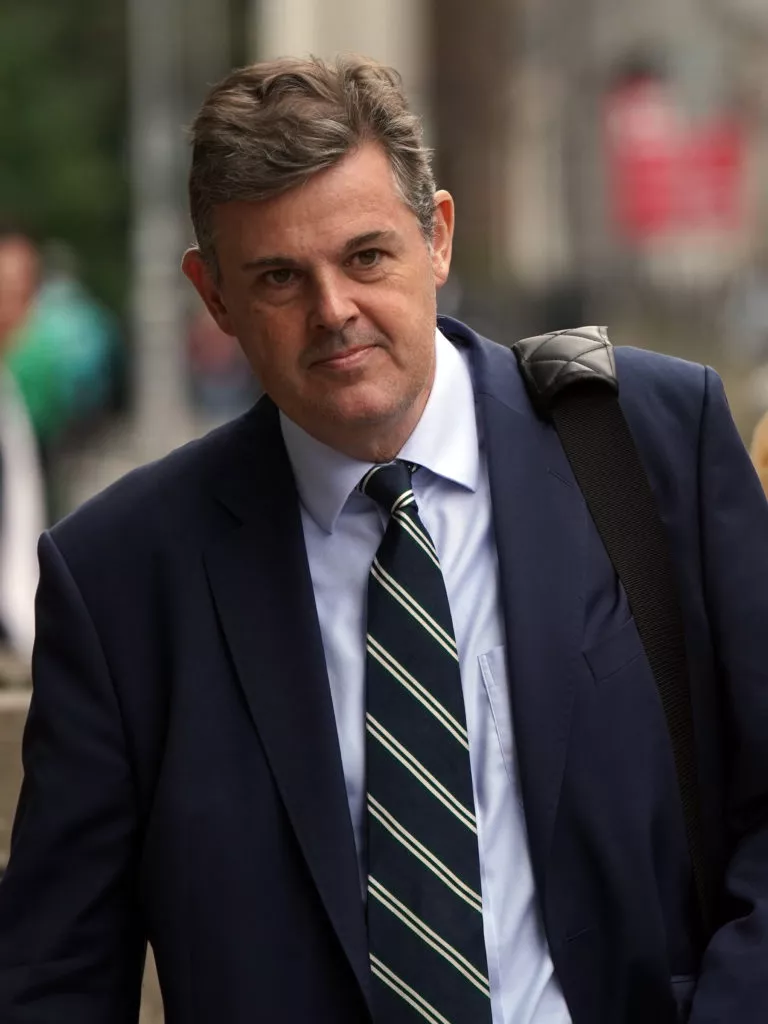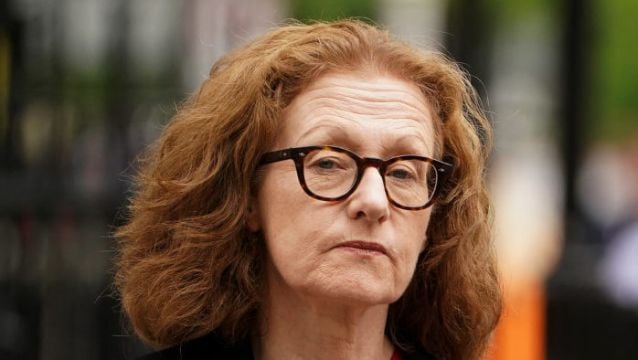Taoiseach Leo Varadkar has said a €450,000 exit package given to a senior executive at RTÉ should be paid back "if proper procedures weren't followed."
Meanwhile, Minister for Media Catherine Martin said there was a "moral obligation" for RTÉ's former chief financial officer, Breda O'Keeffe, to give the money back.
Ms Martin told the Dáil on Thursday that “other key players” at the national broadcaster need to come before the Public Accounts Committee and Oireachtas Media Committee to answer questions.
Speaking separately, Tánaiste Micheál Martin said “the absence of transparency” over the exit packages was “quite shocking”.
“In my view any redundancy package should be within the framework of existing schemes in RTÉ and procedures that organisation administers. I find it difficult to comprehend how packages were agreed without the approval of the board or the executive at the time,” he said.
Ms O'Keeffe's exit package was not brought before the RTÉ executive board for approval and was the only case where the terms of a voluntary redundancy programme were not adhered to, according to an independent report by McCann FitzGerald published last month.
The report stressed that the responsibility for this rested with RTÉ, as individuals were not responsible for putting their applications before the executive board for approval.
The value of the payment to Ms O’Keeffe came to light as RTÉ executives and board members appeared before the Oireachtas Media Committee following the publication of two reports – one that looked at two voluntary exit schemes at RTÉ and one that looked at Toy Show The Musical.

Appearing before the committee on Wednesday alongside colleagues and board members, RTÉ director general Kevin Bakhurst said it was “concerning to me the way that Breda’s package was agreed”, and that he has “absolute sympathy for the staff who are outraged about it because I’m fairly outraged about it myself”.
Under questioning from Senator Malcolm Byrne, he also said he had received a letter from the solicitor of Ms O’Keeffe on Tuesday night “setting a range of things she would like me to say at committee”.
He said: “I even got a letter, as of yesterday evening, from the solicitors of the previous chief financial officer setting out a range of things she would like me to say in committee and the response was, ‘You were invited, you can come in and say them yourself if you want to’.”
He said the organisation had faced “significant” legal pressure in relation to the McCann Fitzgerald report.
“We have had significant legal pressure over months to get this report out, and to deal with this issue, and there is a legal threat over this,” Mr Bakhurst said under questioning from Fine Gael TD Alan Dillon.
After Mr Bakhurst initially said he could not answer the questions due to “confidentiality”, Mr Dillon argued that it should be answered in the interest of “transparency” and “accountability”.
Mr Bakhurst responded: “I agree with you, transparency is important, I agree with you that it’s important in this case. Breda O’Keeffe was paid €450,000 to leave.”
Human resources director Eimear Cusack was questioned about her decision to sign off on the exit package for Ms O’Keeffe, which did not comply with its redundancy scheme but was approved by former director general Dee Forbes.
She said of the voluntary exit schemes at RTÉ, that there were 177 people left from the first scheme carried out in 2017 and 26 from the second scheme in 2021, “all of whom went through due process”.
“And I would have not seen one being as high as that, no,” she said.
Asked if the role of chief financial officer was “suppressed”, she added: “I was told that the cost savings will be achieved. As I said earlier, looking back today, I should have pushed back harder. In that scheme, role suppression was not the only criteria, which is different from 2021, which was run differently.”

Speaking to Ms Cusack at the committee, Sinn Féin TD Imelda Munster said: “If you were doing your job as director of HR, you could say ‘I can’t sign that because it says ‘approved by the executive board”.
“If I sign that I will be party to a lie. At no stage did you intervene as head of HR, at no stage did you speak up and say what is being done here is wrong.
“Were you afraid of Dee Forbes? Were you afraid of questioning her? Were you afraid of tackling this?”
Ms Cusack said she “wasn’t afraid of Dee Forbes”, adding that she took full responsibility for the oversight in signing off the letter.
Ms Munster told Mr Bakhurst that it will be difficult to build up trust with the public when a board member who “never spoke up” is still on the executive board.
Mr Bakhurst said: “There have been consequences at the most senior level in RTÉ. There have been consequences at executive level. I judge each individual case on its merits.
“Eimear made a mistake, she said that in this case. The one thing I would say is I have worked with many heads of HR in my time, Eimear is extremely good as head of HR.
“She is delivering change and fairness across the organisation.”







